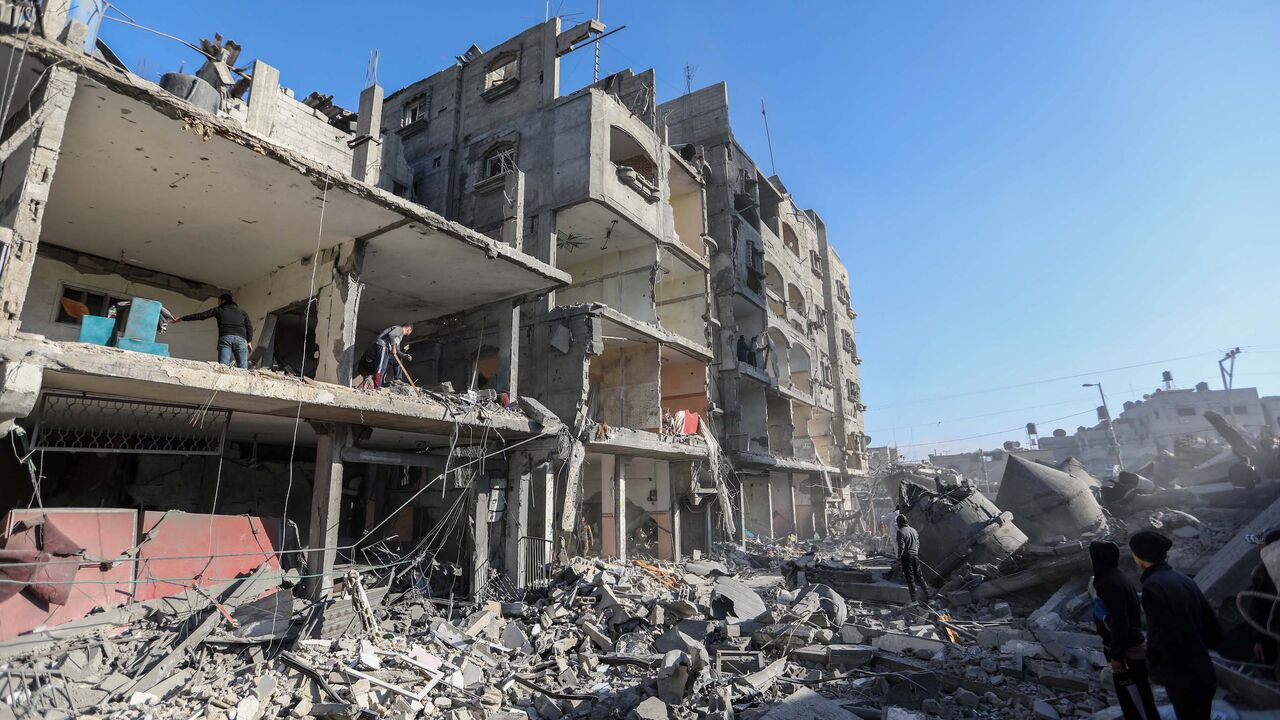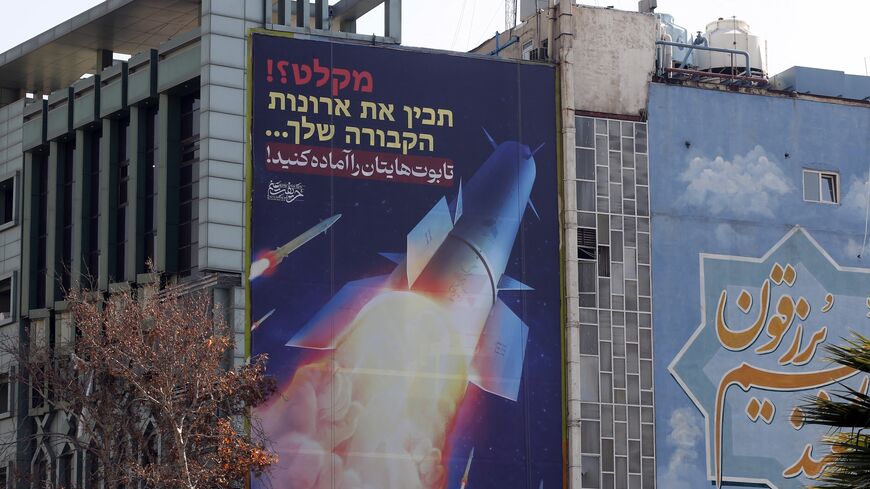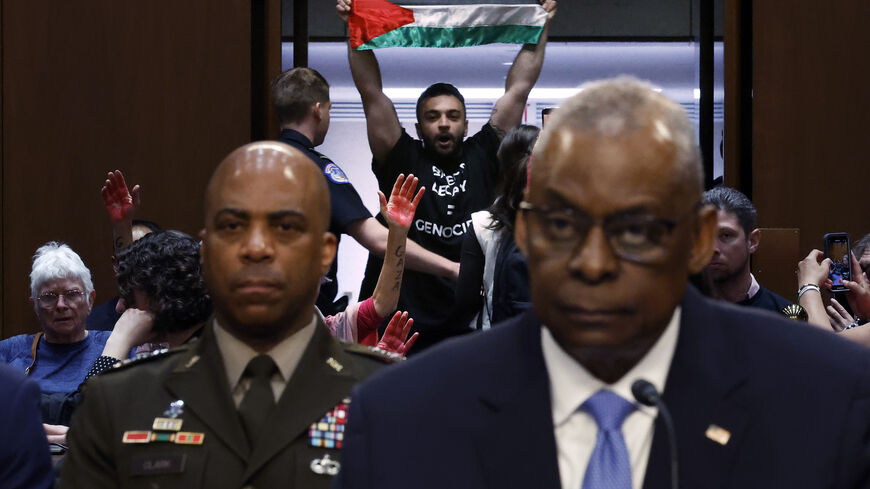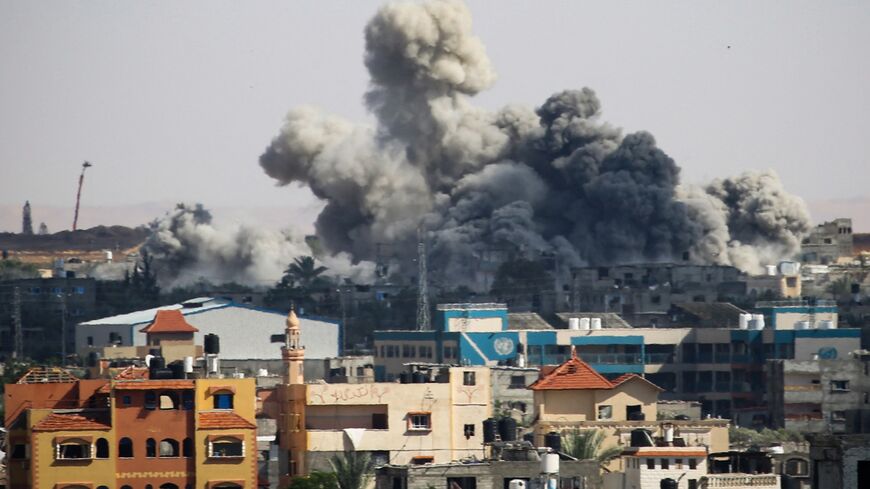Netanuyahu says date set for Rafah operation as Cairo talks enter new round
The Israeli prime minister's announcement came as the US dialed up pressure on Hamas to accept a cease-fire proposal tabled by CIA Director Bill Burns in Cairo over the weekend.

Israel’s prime minister, Benjamin Netanyahu, on Monday announced a date has been set for an Israeli military operation into Rafah, dialing up pressure on Hamas negotiators after the United States tabled a new cease-fire proposal in Cairo.
“This victory requires entering Rafah and eliminating the terrorist battalions there. This will happen. There is a date,” Netanyahu said, without offering any details.
Why it matters: Netanyahu’s announcement came after the United States redoubled pressure on all sides to advance indirect negotiations in Cairo between Israel and Hamas in hopes of achieving a cease-fire.
CIA Director Bill Burns tabled the new proposal on Sunday, White House National Security Council strategic coordinator John Kirby confirmed to reporters on Monday. Washington is now waiting on the Palestinian militant group to issue its response, which US officials expect in the coming days.
President Joe Biden sent letters to Egypt’s president and the emir of Qatar urging them to press Hamas to accept the deal, Kirby confirmed, adding that Burns had returned from Cairo. Hamas negotiators had also departed and are expected to return in two days, Egypt's state-affiliated Al-Qahera news reported.
Reuters cited an unnamed Hamas official on Monday who said the talks in Cairo had not yielded any progress and blamed the Israeli side for "no change" in its position.
The context: Netanyahu’s message came a day after the Israeli military on Sunday said it had withdrawn the 98th Division from southern Gaza to retrofit for future operations. The withdrawal of the 98th, which spearheaded the fight against Hamas in Khan Younis, left no significant Israeli maneuver force in Gaza’s south, Israeli press reported.
Yet Israeli troops remained in other parts of the Gaza Strip, in what could mark the beginning of a shift to the more precise targeted operations Biden administration officials have long been pressing their Israeli counterparts to adopt.
US officials have said they expect Israel not to go forward with a military ground incursion into Rafah until the Israeli government presents a realistic plan to protect the more than 1.4 million Palestinian civilians sheltered there.
Netanyahu’s top adviser, Tzachi Hanegbi, and Israeli Strategic Affairs Minister Ron Dermer are expected in Washington to present a formal Israeli operational plan to US officials, following the prime minister's initial cancellation of their planned visit late last month.
But more than two weeks after Netanyahu's office said the delegation was back on, Pentagon deputy press secretary Sabrina Singh on Monday was unable to confirm a set date.
Despite US opposition to a major Israeli ground invasion of Rafah, Netanyahu last month affirmed there is “no other way” to destroy some four battalions of Hamas fighters that the IDF assesses remain in densely populated Rafah.
What’s next: Defense Secretary Lloyd Austin is scheduled to speak with his Israeli counterpart, Yoav Gallant, this week, Singh said Monday.
The Pentagon is closely watching for any signs that Iran and the militias it backs across the Middle East may be readying to retaliate against Israel for Israeli airstrikes that killed seven senior Islamic Revolutionary Guard Corps (IRGC) officers in Damascus last week.
Iran’s Supreme Leader Ali Khamenei has vowed to punish Israel for the strikes. During a visit to Damascus on Monday, Iran’s foreign minister, Hossein Amir-Abdollahian, accused the United States of giving Israel “a green light” for the Israeli operation.
“I’d like to say with a very loud voice from here in Damascus that America has a responsibility in what happened and must be held responsible,” Amir-Abdollahian was quoted by AP news as having said.
The Biden administration publicly denied any involvement in and foreknowledge of the Israeli strike and communicated that message privately to Iranian officials in the aftermath, Singh said last week.
US officials late last week told Al-Monitor they anticipate an Iranian retaliation for the Israeli strike in the coming days, but said they were not tracking any specific threat streams to US forces or personnel.
“Not just our troops but our diplomatic personnel as well in Iraq and Syria are under constant threat,” Kirby said Monday.
“We take the appropriate force protection measures ... as the threat changes, to make sure they can protect themselves,” he added.
Know more: State Department spokesperson Matthew Miller on Monday flatly denied claims that Iran told the United States it would renege on its promised retaliation against Israel if Washington achieves a cease-fire in Gaza.
“If Iran desires a cease-fire in Gaza, then it should pull out all the stops to do what they can to press Hamas to accept the deal that's on the table — to accept the proposal that was worked up this weekend,” Kirby told reporters.
“If that’s what they really want … they can lean upon Hamas. That would be the best outcome,” he said.








